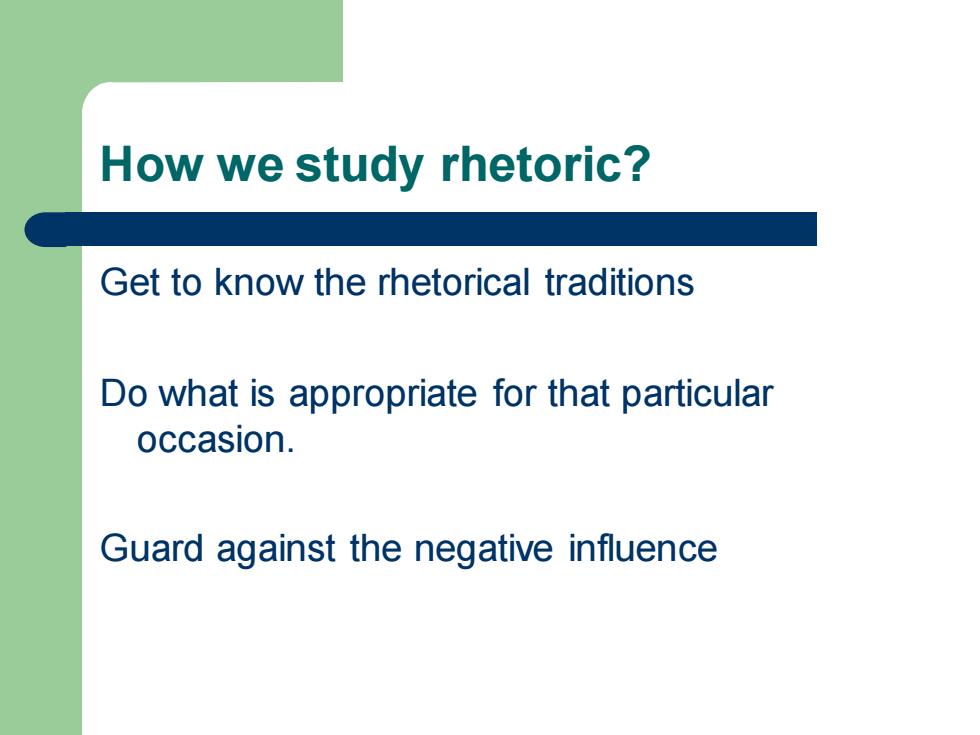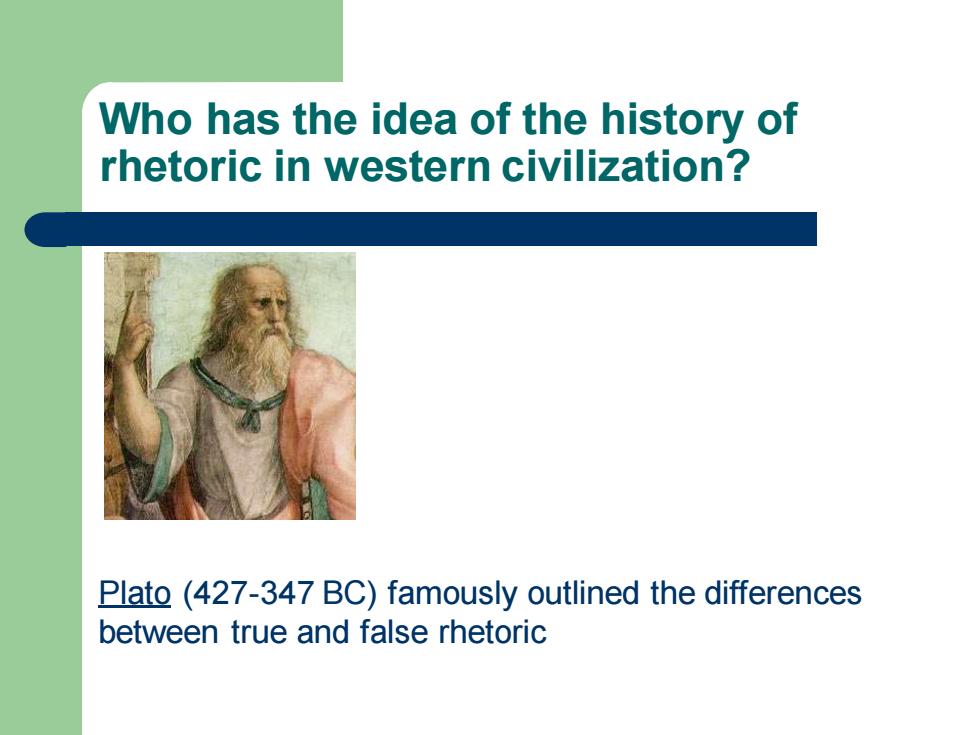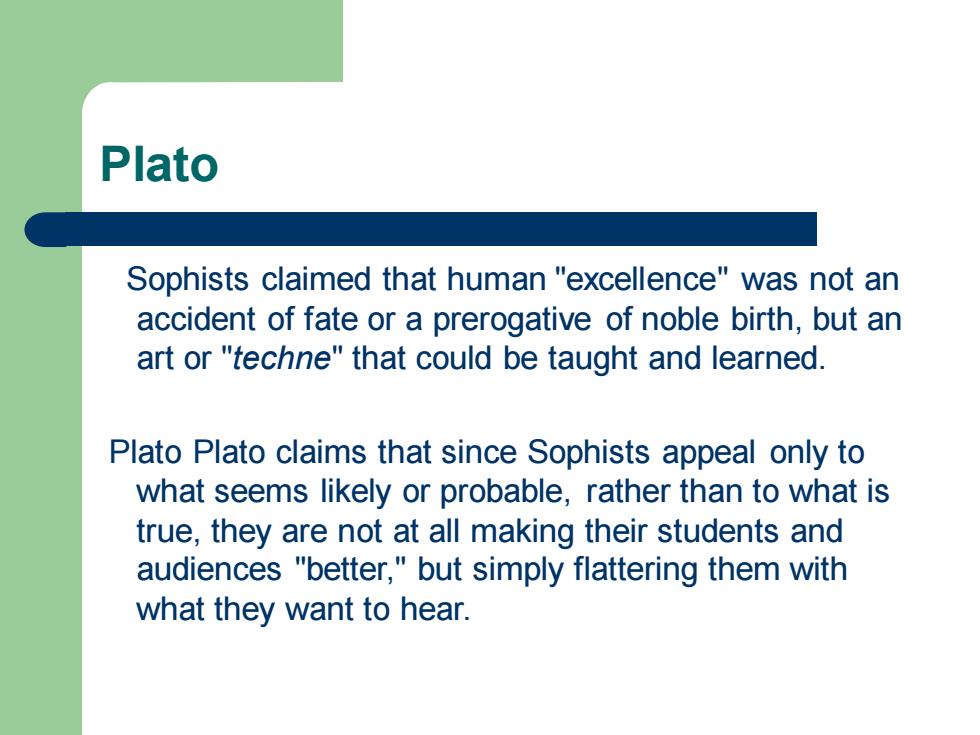
Why we study rhetoric? B:Grammar maps out the possible;rhetoric narrows down the possible to the desirable and effective. Ex. The middle-class American growing up in the United States feels it is his right to have his own room,or at least using part of a room. Faulty parallel structure
Why we study rhetoric? B: Grammar maps out the possible; rhetoric narrows down the possible to the desirable and effective. Ex. The middle-class American growing up in the United States feels it is his right to have his own room, or at least using part of a room. Faulty parallel structure

How we study rhetoric? Get to know the rhetorical traditions Do what is appropriate for that particular occasion. Guard against the negative influence
How we study rhetoric? Get to know the rhetorical traditions Do what is appropriate for that particular occasion. Guard against the negative influence

What is the scope of rhetoric? While classical rhetoric trained speakers to be effective_persuaders in public forums and institutions like courtrooms and assemblies, contemporary rhetoric investigates human discourse writ large. Public relations,lobbying,law,marketing professional and technical writing,and advertising are modern professions that employ rhetorical practitioners
What is the scope of rhetoric? While classical rhetoric trained speakers to be effective persuaders in public forums and institutions like courtrooms and assemblies, contemporary rhetoric investigates human discourse writ large. Public relations, lobbying, law, marketing, professional and technical writing, and advertising are modern professions that employ rhetorical practitioners

Who has the idea of the history of rhetoric in western civilization? Plato (427-347 BC)famously outlined the differences between true and false rhetoric
Who has the idea of the history of rhetoric in western civilization? Plato (427-347 BC) famously outlined the differences between true and false rhetoric

Plato Sophists claimed that human "excellence"was not an accident of fate or a prerogative of noble birth,but an art or "techne"that could be taught and learned. PlatoPlato claims that since Sophists appeal only to what seems likely or probable,rather than to what is true,they are not at all making their students and audiences "better,but simply flattering them with what they want to hear
Plato Sophists claimed that human "excellence" was not an accident of fate or a prerogative of noble birth, but an art or "techne" that could be taught and learned. Plato Plato claims that since Sophists appeal only to what seems likely or probable, rather than to what is true, they are not at all making their students and audiences "better," but simply flattering them with what they want to hear